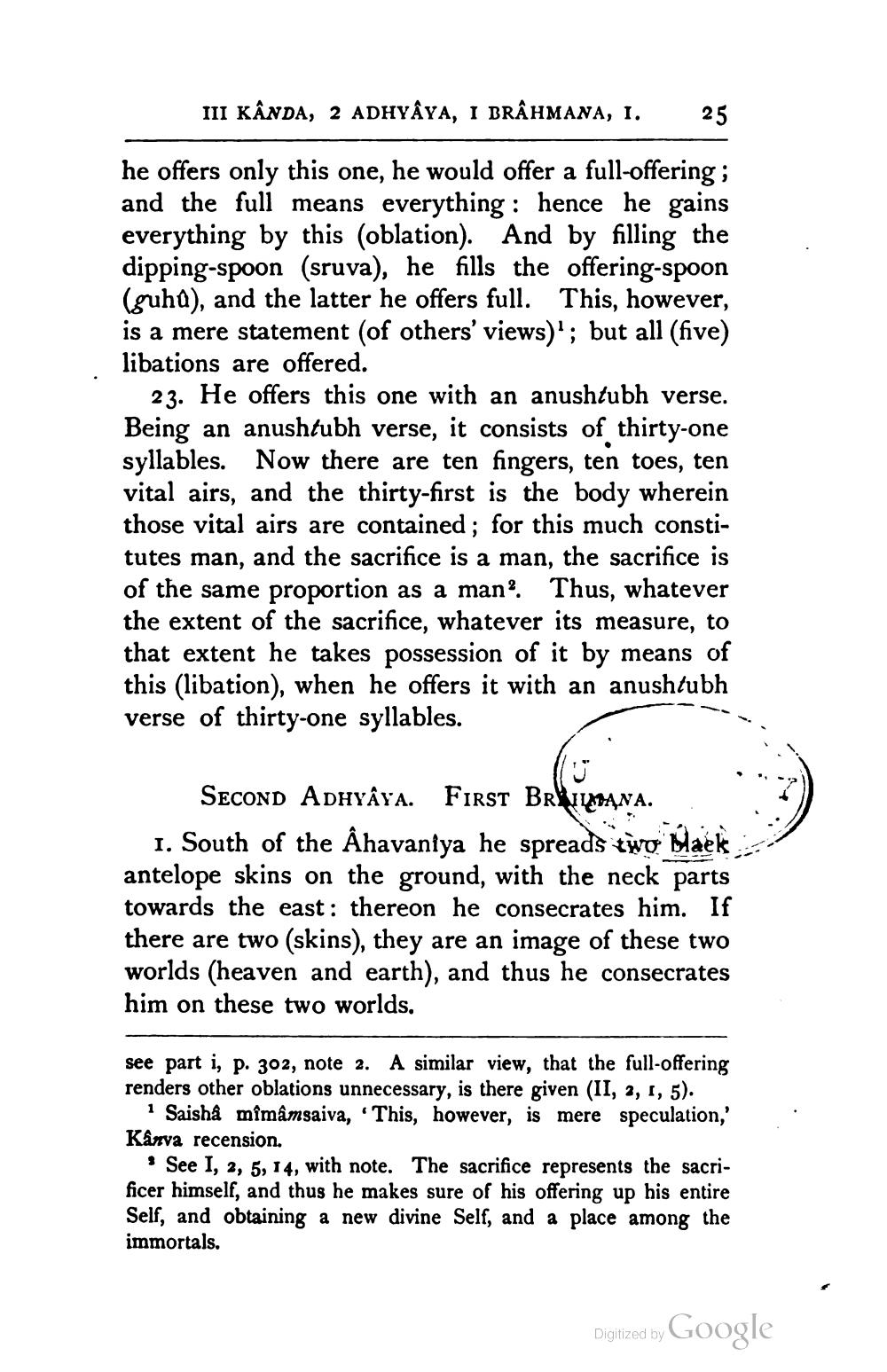________________
III KÂNDA, 2 ADHYAYA, I BRAHMANA, I. 25
he offers only this one, he would offer a full-offering; and the full means everything: hence he gains everything by this (oblation). And by filling the dipping-spoon (sruva), he fills the offering-spoon (guhu), and the latter he offers full. This, however, is a mere statement (of others' views)1; but all (five) libations are offered.
23. He offers this one with an anushubh verse. Being an anushubh verse, it consists of thirty-one syllables. Now there are ten fingers, ten toes, ten vital airs, and the thirty-first is the body wherein those vital airs are contained; for this much constitutes man, and the sacrifice is a man, the sacrifice is of the same proportion as a man'. Thus, whatever the extent of the sacrifice, whatever its measure, to that extent he takes possession of it by means of this (libation), when he offers it with an anush/ubh verse of thirty-one syllables.
SECOND ADHYAYA.
FIRST BRIMANA.
1. South of the Âhavantya he spreads two Maek antelope skins on the ground, with the neck parts towards the east: thereon he consecrates him. If there are two (skins), they are an image of these two worlds (heaven and earth), and thus he consecrates him on these two worlds.
see part i, p. 302, note 2. A similar view, that the full-offering renders other oblations unnecessary, is there given (II, 2, 1, 5).
1 Saisha mîmâmsaiva, 'This, however, is mere speculation,' Kanva recension.
See I, 2, 5, 14, with note. The sacrifice represents the sacrificer himself, and thus he makes sure of his offering up his entire Self, and obtaining a new divine Self, and a place among the immortals.
Digitized by
Google




